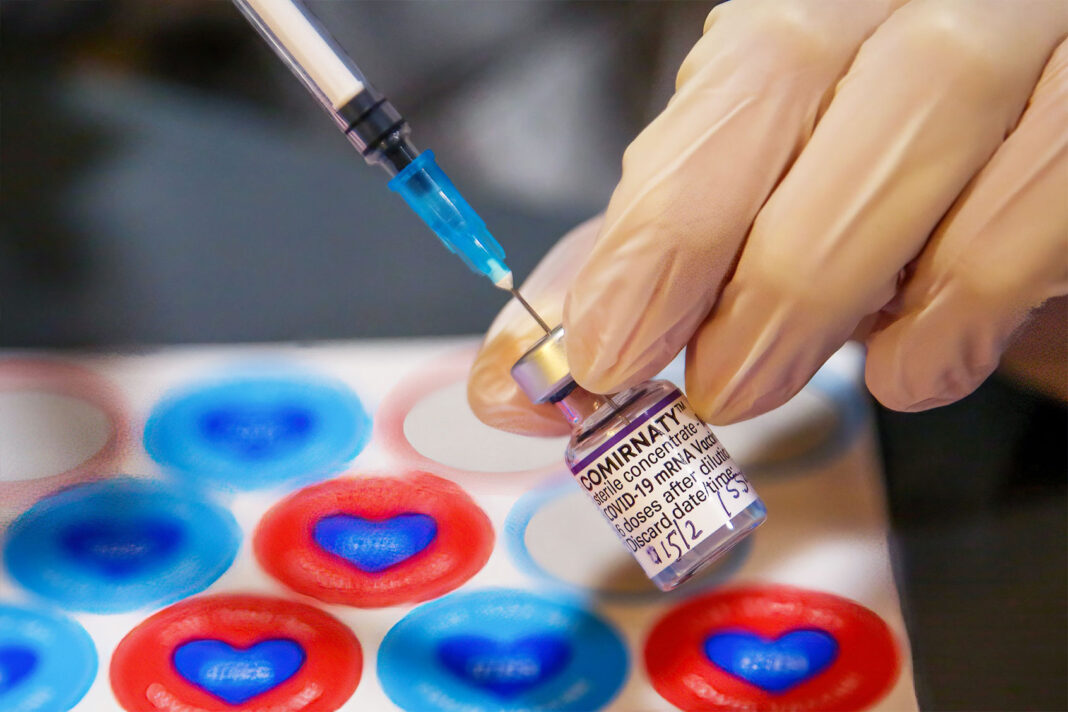— Shares Facebook Twitter Reddit Email view in app This article was originally published on The Conversation . People who consume a lot of news on social media are more likely to be skeptical of COVID-19 vaccines and also more hesitant about getting vaccinated, according to our newly published research . But we found that social media users with higher levels of news literacy have more confidence in COVID-19 shots.
Other research has found that heavy reliance on social media exposed individuals to misinformation related to COVID-19 , especially on the efficacy of vaccines. In the thick of the pandemic in 2020, we measured how skeptical social media users were about the development of a safe and effective COVID-19 vaccine and how likely they would be to get the shot if it were available. We also assessed participants’ news literacy by asking nine questions that tested how much they knew about how journalism works — for example, identifying which outlets did their own reporting as opposed to aggregating news and which publications were for-profit.
You can take the quiz to test your own level of media literacy . In our study, participants with low levels of news literacy, which meant correctly answering only three of the nine questions on average, were more likely to be vaccine hesitant than those with moderate (four to six correct answers) or high (seven or more correct answers) levels of news literacy. We infer that mis- and disinformation about the efficacy of COVID-19 vaccines that spreads via social media transforms into vaccine hesitancy, especially among people who are less savvy about distinguishing real from false news.
Our conclusion fits with other researchers’ finding that enhancing media literacy is an effective intervention against misinformation. Why it matters During the pandemic, people relied heavily on social media for recreation, stress reduction and coronavirus-related news. For instance, a 2021 report by Pew Research Center found about half of Americans relied on social media for news about COVID-19 .
As a result, social media users were exposed to misinformation about the coronavirus at the same time skepticism of scientists and public health institutions related to COVID-19 was on the rise. Health misinformation on social media can also lead people to develop false beliefs about public health interventions such as vaccines. Despite the mass availability of vaccines in the U.
S. , only 49% of the population had completed the primary COVID-19 series and gotten a booster shot as of Oct. 19, 2022.
A March 2022 study by the Centers for Disease Control and Prevention found unvaccinated people were 12 times more likely to be hospitalized than those who were vaccinated. Vaccination helps mitigate the harmful effects of COVID-19. Anything that erodes confidence in the shot matters for public health.
What other research is being done One important line of work investigates who is likely to be susceptible to COVID-19 misinformation. For instance, one 2020 study found that heavy users of social media who are also politically conservative are more likely to be susceptible to misinformation related to COVID-19 than those who are not conservative. Researchers have also tested ways to reduce COVID-19 misconceptions.
In one instance, the World Health Organization (WHO) designed and publicized shareable infographics debunking various coronavirus myths. A study showed exposure to infographics lowered belief in the particular COVID-19 myth being targeted. The effect was the same whether the graphic was shared by WHO or by an anonymous Facebook user.
How we do our work Our study relied on online survey data collected in the U. S. at two different times — once in late September 2020 and then four weeks later, just before the U.
S. presidential election. Our initial sample of 2,000 participants was selected to closely match the entire U.
S. population in age, gender distribution and political affiliation. Participants were rated high, moderate or low for both COVID-19 vaccine hesitancy and media literacy based on our questionnaire.
The follow-up sampled 673 participants. Checking up on our participants a month later allowed us to confirm their beliefs were consistent on more than one occasion. Muhammad E.
Rasul , Doctoral Student and Provost’s Research Fellow, University of California, Davis ; Jaeho Cho , Professor of Communication, University of California, Davis , and Saifuddin Ahmed , Assistant Professor of Communication and Information, Nanyang Technological University This article is republished from The Conversation under a Creative Commons license. Read the original article . By Muhammad E.
Rasul MORE FROM Muhammad E. Rasul By Jaeho Cho MORE FROM Jaeho Cho By Saifuddin Ahmed MORE FROM Saifuddin Ahmed Related Topics —————————————— Covid-19 Health Media Misinformation Pandemic Social Media Vaccines Related Articles Advertisement: Advertisement: Trending Articles from Salon Advertisement: Advertisement:.
From: salon
URL: https://www.salon.com/2022/11/10/the-connection-between-social-media-use-and-vaccine-hesitancy_partner/



